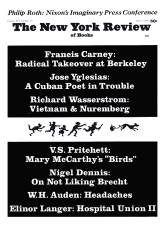TRAVELERS
I have here the garments of opulence,
though more informal, more beautifully scandalous.
University diplomas, enormous books
They manage to get visas quickly.
They get accurate reports on pacifist campaigns.
Protests against the war in Nam. In short,
they are people who have chosen the sane,
They have taken the plane illegally, i.e., no passport,
but are the most comfortable travelers of the future.
They feel delightfully subversive
and at peace with their consciences.
Their Nikons, Leicas, Rolliflexes (a
matter of individual taste) gleam
perfectly competent to handle
the tropical light, to handle the
underdevelopment. Notebooks flip
open for objective interviews, although of course,
they do not deny that they feel just slightly illicit,
because they love guerrilla warfare, the rough outdoor life, the
struggle, and the strange Spanish the natives speak, a
language which would dazzle Noam Chomsky, no doubt.
In two or three weeks they’ve already sufficient experience
on the struggle within the cities,
on the Cuban character
(or on all of these subjects)
and as well, one would imagine,
on the specificity of the slightly insolent, but
exciting sort of Spanish Cubans speak.
These people are very educated, very serious,
provided with systems and methods, so that
it is by no means a rarity that they go back
frustrated by the lack of sexual freedom among the Cubans,
by the inevitable puritanism of revolutions, and by that
which, finally, with a certain melancholy, they end up calling
the gap between theory and practice.
Privately, they confess (not
in their books or at conferences) that
they cut more cane in that field than the best machete-man,
In the field camps, they do not deny, the people preferred to dance,
that the intellectuals “not politically minded at all”
were capable of preoccupation even with poetry.
The night they get back and go to bed with their wives, they
imagine they have developed super muscles (those canefields),
and act like negros, despicable simply.
Their mistresses (taken generally three years apart)
applaud these unused, now insatiable husbands.
For several days they project slides in darkened livingrooms
in which the traveler appears, the hero surrounded by Cubans:
the ICAP guides, skinny and badly dressed, smile
into the camera.
hug the hero fraternally.
There are a lot of photos of that ilk throughout the world
of me: I
look like a mountebank. One eye
stares resentfully at the camera,
the other looks anywhere else.
Wives, sons, friends of the energetic traveler look
and suppress their disgust: I’m trapped in
the photo, a caged lion
roaring against words of importance:
But I cannot transmogrify
file clerks from universities, nor clarify
(March, 1970)
IMPORTANT OCCASIONS
We’re contemporaries finally
(endangered, blockaded),
of the important countries,
the ones that really count. All
the bombs of the century destroying more than half the world,
suddenly threaten
to blow up
the shining roofs of the Island.
If they were to ask me now:
The way an Englishman gets mad, gathering
my brow into a solid scowl, I’d
know how to answer with total exactitude.
In our streets even geography has been overthrown.
Gorky Park in Moscow
begins at the corner of Neptuno.
Peking’s Avenue of Peace ends
at Zanja and Galiano.
From the woods at La Habana
furious Congolese troops emerge.
Uncrowned kings stroll along the Rampa boardwalk, their
worthless, lugubrious lions acting as escort,
and Cuban kids
stir about in the night like Zambian flowers.
But I haven’t come to inventory these wonders, I
am rigging myself out now to enter History.
Must learn comportment (o yes), to say
buenos dias, buenas tardes, buenas noches
in two or three languages at least;
as soon as possible I have to get out of this
tiny apartment in which we barely fit, let
my hair grow; and these primitive unfriendly looks of mine,
rip off that disguise.
The pile of photographers and newspapermen
Perhaps it will be necessary to make a speech.
Must one make a splendid speech for such occasions?
If only it were a matter of launching upon the world,
Cuba, my country,
your multitude of jokers suffering from malnutrition, your poets,
it might be possible to
get something done: to change styles, for example,
undertake an epic, put more enthusiasm in our poetry,
describe shimmering landscapes, Cubans singing
under the moon, girls stripped to their skins, shining like
the moon, poets working the canefields
stretched out on the beaches resting, writing
in the sand in capital letters:
VENCEREMOS,
CLARO QUE VENCEREMOS,
History’s going to save us—we were thinking.
Going to save us—were we dreaming?
It wasn’t all just uprisings, barricades, bonfires:
in our heads it was a dress of bubbling foam, a
Rhine maiden with clear eyes, smiling, standing
at the door, hand outstretched
toward a hungry and waiting people.
But there was no one in the doorway. Nor in the house.
Instead we stumbled. They shoved us inside. We
broke our teeth going in, got our jaw smashed.
We found tools and weapons and we
fought, we struggled, we worked and continued
fighting. But it’s true, old Marx,
that History is not enough.
It’s a real, live man who does it,
who masters it, who will fight.
History by itself does
It does absolutely nothing.
(July 28, 1970)
This Issue
June 3, 1971



